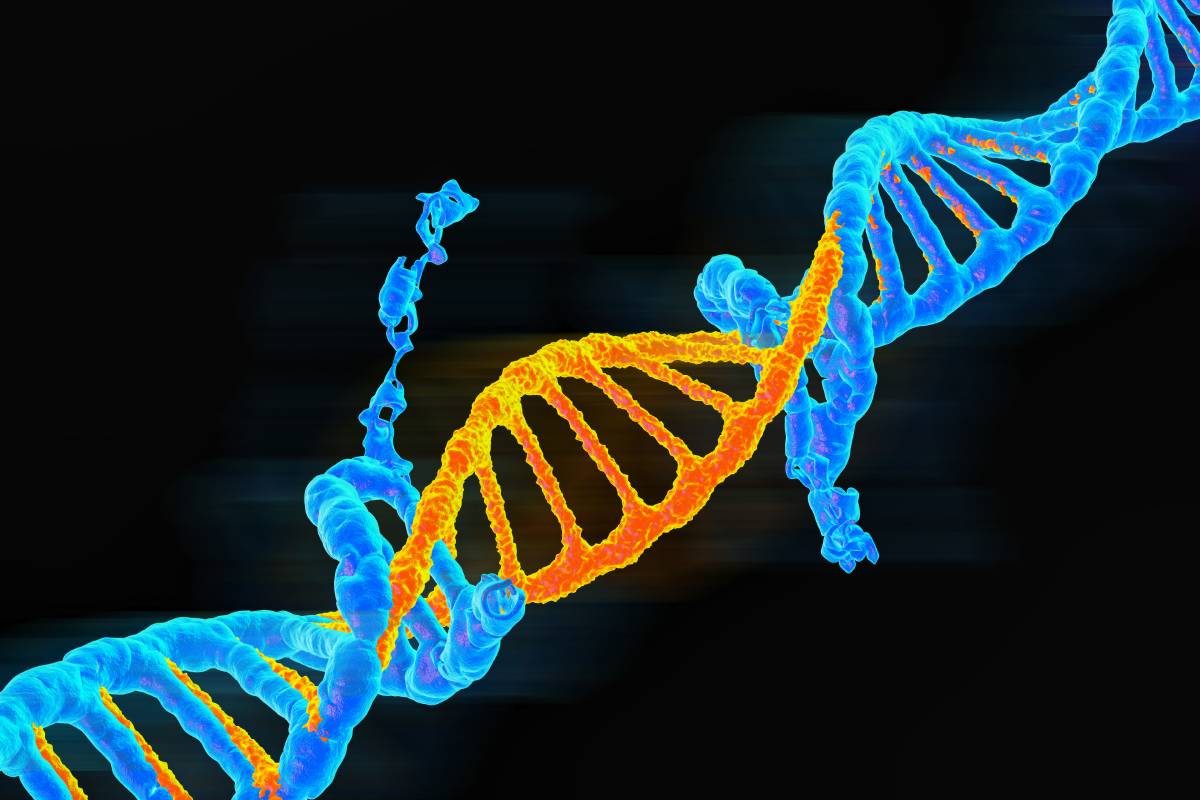
Perhaps one of the most unique characteristics of the COVID-19 pandemic has been the large variability in infection-related morbidity and mortality. Disparities have been noted on several levels: between different ethnic groups and even within relatively homogenous demographics. Questions remain as to why some healthy, young adults have asymptomatic or mild infections while others require admission to the intensive care unit. For some researchers, these trends point towards the possibility of genetic and evolutionary determinants of COVID-19 susceptibility.1
For patients with known genetic abnormalities, deletory effects on immune response to infection might be expected. For example, inborn errors of immunity, which include primary immunodeficiencies, increase susceptibility to a number of different infections, COVID-19 included, as well as autoimmune, inflammatory, and allergic diseases.2 A study performed by the COVID Human Genetic Consortium demonstrated that a myriad of monogenic predispositions which had been previously associated with influenza susceptibility also increased susceptibility to COVID-19. By performing both exomic and genomic sequencing on a large cohort of critically ill COVID-19 patients, the Consortium revealed thirteen such genes, including core immune genes TLR3, IRF7 and IRF9.2
However, most individuals with genetic susceptibility to COVID-19 infection likely have a more complex etiology, orchestrated by multiple genes. The growing prevalence of genetic testing, both commercially and in healthcare settings, has made large-scale GWAS studies in the COVID-19 era possible. For example, the largest meta-analysis of genetic susceptibility to COVID-19 infection included approximately 125,500 cases and over 2.5 million controls.3 As a result of this mass study, the COVID-19 Host Genetics Initiative identified almost two dozen loci significantly associated with disease susceptibility or severity. One locus which was particularly prominent in their findings was on chromosome three, location 3p21.31 – a gene thought to encode an ACE-2 interacting sodium transporter.3 Given that SARS-CoV-2 targets the ACE-2 receptor on the cell membrane, the relationship between the 3p21.31 locus and increased disease susceptibility is consistent with known mechanisms of COVID-19 infection.
As previously mentioned, significant discrepancies in the severity of SARS-CoV-2 infection have been noted across different ethnicities. Individuals of European ancestry tend to have reduced morbidity and mortality related to infection. While there is speculation that this disparity could be attributed to pervasive socioeconomic differences across racial groups, adjusting for these variables failed to fully ameliorate the difference for Black and South Asian populations, suggesting additional factors at play.4 Continued investigation revealed one unexpected predictor for susceptibility to COVID-19 infection: Neanderthal ancestry.5,6,7 A study conducted by the COVID-19 Host Genetics Initiative reported that a roughly 75kb haplotype, which is likely traceable to Neanderthal descent and is absent in African Homosapiens, is associated with a nearly 25 percent reduction in hospitalization risk due to COVID-19.6 The haplotype encodes antiviral enzymes which contribute to improved immunity. However, the beneficial effect of this haplotype may be negated by the inheritance of other, less advantageous genes: on chromosome 3, 3p21.31, a 50kb Neanderthal haplotype has been linked to increased severity of COVID-19 infection.7 This specific Neanderthal haplotype is at least three times more prevalent in South Asian populations and is associated with as much as a 60 percent increase in hospitalization.7
Overall, much is still to be learned concerning evolutionary and genetic susceptibility to SARS-CoV-2 infection, particularly when it comes to the influence of Neanderthal ancestry on disease severity. However, continued investigation will continue to improve our understanding of the mechanisms underlying severe COVID-19 infection and may even help us to better identify at-risk populations or create more targeted curative treatments.
References
1 Kerner, G., & Quintana-Murci, L. (2022). The genetic and evolutionary determinants of COVID-19 susceptibility. European journal of human genetics : EJHG, 1–7. Advance online publication. https://doi.org/10.1038/s41431-022-01141-7
2 Zhang, Q., Bastard, P., Liu, Z., Le Pen, J., Moncada-Velez, M., Chen, J., Ogishi, M., Sabli, I., Hodeib, S., Korol, C., Rosain, J., Bilguvar, K., Ye, J., Bolze, A., Bigio, B., Yang, R., Arias, A. A., Zhou, Q., Zhang, Y., Onodi, F., … Casanova, J. L. (2020). Inborn errors of type I IFN immunity in patients with life-threatening COVID-19. Science (New York, N.Y.), 370(6515), eabd4570. https://doi.org/10.1126/science.abd4570
3 COVID-19 Host Genetics Initiative (2021). Mapping the human genetic architecture of COVID-19. Nature, 600(7889), 472–477. https://doi.org/10.1038/s41586-021-03767-x
4 Williamson, E. J., Walker, A. J., Bhaskaran, K., Bacon, S., Bates, C., Morton, C. E., Curtis, H. J., Mehrkar, A., Evans, D., Inglesby, P., Cockburn, J., McDonald, H. I., MacKenna, B., Tomlinson, L., Douglas, I. J., Rentsch, C. T., Mathur, R., Wong, A., Grieve, R., Harrison, D., … Goldacre, B. (2020). Factors associated with COVID-19-related death using OpenSAFELY. Nature, 584(7821), 430–436. https://doi.org/10.1038/s41586-020-2521-4
5 Zeberg, H., & Pääbo, S. (2020). The major genetic risk factor for severe COVID-19 is inherited from Neanderthals. Nature, 587(7835), 610–612. https://doi.org/10.1038/s41586-020-2818-3
6 Pairo-Castineira, E., Clohisey, S., Klaric, L., Bretherick, A. D., Rawlik, K., Pasko, D., Walker, S., Parkinson, N., Fourman, M. H., Russell, C. D., Furniss, J., Richmond, A., Gountouna, E., Wrobel, N., Harrison, D., Wang, B., Wu, Y., Meynert, A., Griffiths, F., Oosthuyzen, W., … Baillie, J. K. (2021). Genetic mechanisms of critical illness in COVID-19. Nature, 591(7848), 92–98. https://doi.org/10.1038/s41586-020-03065-y
7 Zeberg, H., & Pääbo, S. (2020). The major genetic risk factor for severe COVID-19 is inherited from Neanderthals. Nature, 587(7835), 610–612. https://doi.org/10.1038/s41586-020-2818-3

